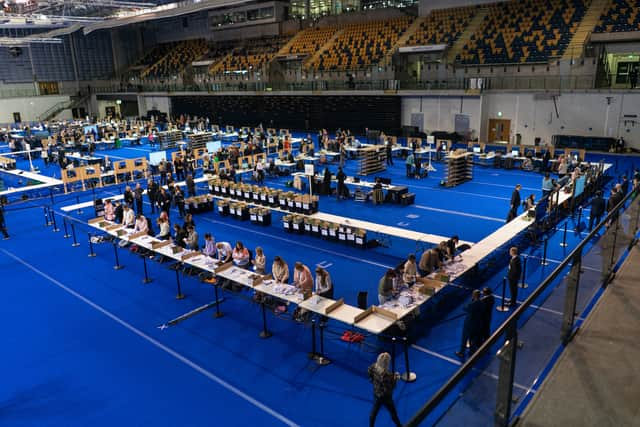Thousands of Glasgow ballots rejected during local election count - numbers for each ward
and live on Freeview channel 276
The SNP won 37 seats at the elections last week - one more than Labour - and could team up with the Greens, who won a record 10 seats, to form the next Glasgow council administration.
Following the vote count, official figures produced by Glasgow City Council showed that thousands of ballots had been rejected.
Advertisement
Hide AdAdvertisement
Hide AdIn total, 4881 votes across the 23 Glasgow wards were rejected during the count.


Despite the large figure, the council says it is an improvement on 2017 and called on political parties to help ensure that Glaswegians know how to cast their vote.
Ward figures
The figures differed from ward to ward, with some performing better than others.
For example, in Hillhead just 73 votes were rejected, compared to 346 in Canal - the lowest and highest numbers in Glasgow respectively.
Advertisement
Hide AdAdvertisement
Hide AdCanal had the highest proportion of rejected ballots - 5.4 per cent.
Linn - 9194 - 200
Newlands-Auldburn - 7779 - 214
Greater Pollok - 9138 - 269
Cardonald - 8814 - 242
Govan - 6689 - 233
Pollokshields - 10,551 - 189
Langside - 11,579 - 239
Southside Central - 8013 - 296
Calton - 6274 - 202
Anderston/City/Yorkhill - 6090 - 180
Hillhead - 6998 - 73
Victoria Park - 8701 - 84
Garscadden/Scotstounhill - 8922 - 293
Drumchapel/Anniesland - 7448 - 222
Maryhill - 5864 - 201
Canal - 6138 - 346
Springburn - Robroyston - 7042 - 252
East Centre - 7225 - 268
Shettleston - 7620 - 256
Baillieston - 7421 - 166
North East - 4659 - 158
Dennistoun - 5618 - 154
Partick East/Kelvindale - 10,364 - 133
What is the council saying?
A spokesman said: “Glasgow did not record the highest proportion of rejected ballots – and actually improved on 2017 – however it did remain above the Scottish average in many wards.
“Returning Officers and their staff do everything they can to ensure votes are accepted – but, in some cases, it just isn’t possible to safely interpret a voter’s intention.
“Everyone, including political parties, has a role to play in making sure voters receive clear and reliable information on how the different voting systems used in each election work – and the council will continue to promote and share guidance from the Electoral Commission.”
Comment Guidelines
National World encourages reader discussion on our stories. User feedback, insights and back-and-forth exchanges add a rich layer of context to reporting. Please review our Community Guidelines before commenting.
